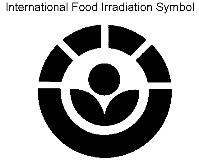 While we tend to focus here on commercial power, we shouldn't forget to mention other beneficial uses of nuclear science and technology. My colleague Todd Flowers recently wrote about food irradiation and the role it could play in preventing food-bourne illnesses related to bacteria like E.Coli in a letter-to-the-editor in the Richmond Times-Dispatch.
While we tend to focus here on commercial power, we shouldn't forget to mention other beneficial uses of nuclear science and technology. My colleague Todd Flowers recently wrote about food irradiation and the role it could play in preventing food-bourne illnesses related to bacteria like E.Coli in a letter-to-the-editor in the Richmond Times-Dispatch.For more information about food irradiation visit this page by the American Nuclear Society, this page from the Centers for Disease Control, and this page from the the USDA Food Safety Research Information Office. Here are a couple of quotes from that last link:
Currently irradiation is the only known method to eliminate E. coli O157:H7 bacteria in raw meat. Irradiation also significantly reduces levels of other pathogenic organisms including Cyclospora, Listeria, Salmonella, Campylobacter and the protozoan parasite Toxoplasma gondi on raw products.and
Extensive studies have been performed by the World Health Organization (WHO), Food and Agricultural Organization (FAO), and the International Atomic Energy Agency (IAEA), to determine the safety and quality of irradiated foods. It has been determined that there is no harm in the food itself or risk to the consumers, that the disease-causing germs are dramatically reduced or even possibly eliminated, and the food itself does not become radioactive.The way I've explained it to people is that just like having an X-ray does not make a person radioactive, neither does food irradiation make what we eat radioactive.
Let's continue to spread the word!
Technorati tags: Nuclear Energy, Technology, Health Physics, Food Irradiation
Comments